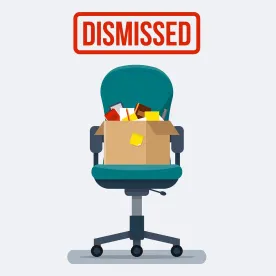Under the Coronavirus Aid, Relief, and Economic Security (CARES) Act, the “Relief for Workers Affected by Coronavirus Act” (Title II, Section A) provides for a substantial expansion of unemployment insurance and benefits for workers sidelined for specified reasons associated with COVID-19. Key aspects of the program are as follows:
Pandemic Unemployment Assistance – Section 2102
Section 2102 creates the temporary Pandemic Unemployment Assistance program (the “Program”), effective January 27, 2020, to remain in effect until December 31, 2020, which covers individuals who would not otherwise be eligible for unemployment insurance and benefits – the self-employed, independent contractors, gig workers, part-time employment seekers, those who lack sufficient work history, or who have exhausted their unemployment benefits under existing schemes – provided they are able to self-certify that they are unemployed, partially unemployed, or unable to unavailable to work because:
-
They have been diagnosed with COVID-19 or are experiencing symptoms of COVID-19 that require a medical diagnosis.
-
A member of their household has been diagnosed with COVID-19.
-
They are providing care for a family member or member of their household who has been diagnosed with COVID-19.
-
A member of their household for which they have primary caregiving responsibility is unable to attend school or another facility that has been closed as a direct result of the COVID-19 public health emergency and because of this closure they are unable to work.
-
They are unable to work because of a quarantine imposed as a result of the COVID-19 public health emergency.
-
They are unable to work because they have been advised to self-quarantine by a health care provider.
-
They were scheduled to start a job but are unable to do so as a result of the COVID-19 public health emergency.
-
They have become a “major support for a household” because the breadwinner in the household has died as a direct result of COVID-19.
-
They quit their job as a direct result of COVID-19.
Of note, individuals who are able to telework with pay or who have received paid sick leave or other paid leave benefits are ineligible to receive assistance under the Program.
-
Covered individuals may receive assistance under the Program for a maximum of 39 weeks, including any weeks for which the covered individual received regular unemployment benefits provided under Federal or State law.
-
The amount of benefit provided to a covered individual under the Program is equal to the amount of unemployment benefit the covered individual would otherwise be entitled to under Federal or State law plus an additional amount referred to as Federal Pandemic Unemployment Compensation in the amount of $600 per week.
-
The Program removes any waiting periods established by state unemployment laws.
Emergency Unemployment Relief for Government Entities and Non-Profits – Section 2103
Section 2103 establishes a scheme whereby the Federal Treasury will pay states to reimburse nonprofits, government agencies, and Indian tribes for half of the costs they incur to pay for all unemployment benefits through December 31, 2020.
Emergency Increase in Unemployment Compensation Benefits – Section 2104
-
Section 2104 provides for an additional $600 per week payment, referred to as “Federal Pandemic Unemployment Compensation,” to recipients of unemployment insurance or Pandemic Unemployment Assistance for a period of up to four months.
-
The Federal Pandemic Unemployment Compensation will not count as income for purposes of determining eligibility for Medicaid and the State Children’s Health Insurance Program (CHIP).
Temporary Full Federal Funding of the First Week of Compensable Regular Unemployment for States with No Waiting Week – Section 2105
Section 2105 establishes a regime by which the Federal Treasury will fully reimburse states who provide unemployment compensation to individuals for their first week of regular unemployment (i.e., without a one-week waiting period). All costs associated with waiving the waiting period will be fully covered through December 31, 2020.
Emergency State Staffing Flexibility – Section 2106
Section 2106 amends the Emergency Unemployment Stabilization and Access Act of 2020 (Section D of the Families First Coronavirus Response Act) to provide states with temporary “emergency” flexibility through December 31, 2020, to hire temporary staff, re-hire former staff, or take other “temporary actions to quickly process unemployment claims.”
Pandemic Emergency Unemployment Compensation – Section 2107
-
Section 2107 provides an additional 13 weeks of unemployment compensation, through December 31, 2020, to all individuals who otherwise would be ineligible for such compensation because they have exhausted all rights to regular unemployment compensation under applicable state or federal law with respect to this benefit year, provided they (i) have no rights to regular unemployment compensation under any applicable state or federal law, (ii) are not receiving unemployment compensation under Canadian law, and (iii) are able, available and actively seeking work.
-
The amount of unemployment compensation payable to an individual under this Section is equal to the amount of unemployment benefit the individual would otherwise be entitled to under applicable federal or state law plus the amount of Federal Pandemic Unemployment Compensation ($600).
-
Section 2107 mandates that states establish Pandemic Emergency Unemployment Compensation Accounts for each eligible individual who files an application for pandemic emergency unemployment compensation. Each account must be funded by an amount equal to 13 times the individual’s average weekly benefit amount, including the amount of Federal Pandemic Unemployment Compensation.
-
This section also provides for a regime by which states will be fully reimbursed by the Federal Treasury for all costs associated with the Pandemic Emergency Unemployment Compensation program established by Section 2107.
Temporary Financing of Short-Time Compensation Payments in States with Programs in Law – Section 2108
-
Section 2108 provides funding to so-called short-time compensation or workshare programs, whereby employers reduce employee hours instead of laying off workers and the employees with reduced hours receive a pro-rated unemployment benefit. This provision would reimburse states for 100 percent of the costs they incur in providing this benefit through December 31, 2020.
-
Section 2108 precludes reimbursements for benefits paid to individuals who are employed by the participating employer on a seasonal, temporary, or intermittent basis.
-
New short-time compensation or workshare programs established by states prior to December 31, 2020 will receiving funding.
Temporary Financing of Short-Time Compensation Agreements – Section 2109
-
Section 2109 provides funding to support states which begin short-time compensation or workshare “agreements.” Under these “agreements” the Treasury would cover 50 percent of the costs that a state incurs in providing short-time compensation through December 31, 2020. The other 50 percent of costs associated with the “agreements” would be paid by participating employers.
-
If a participating state enacts a short-time compensation or workshare law that complies with Section 13 3306(v) of the Internal Revenue Code of 1986, the state would then be disqualified from receiving funding under Section 2109 and would be eligible for full reimbursements under Section 2108.
Grants for Short-Time Compensation Programs – Section 2110
Section 2110 provides for $100 million in grants to be given to states to assist in the implementation and administration of short-time compensation or workshare programs.
Assistance and Guidance in Implementing Programs – Section 2111
Section 2111 requires the Department of Labor to develop and disseminate model legislative language for states, provide technical assistance, and establish reporting requirements related to short-time compensation or workshare programs.
Funding for the Department of Labor Office of Inspector General for Oversight of Unemployment Provisions – Section 2115
Section 2115 provides the Department of Labor’s Inspector General with $25 million to carry out audits, investigations, and other oversight of the provisions of this subtitle.
Implementations – Section 2116
Section 2116 authorizes the Secretary of Labor to issue operating instructions or other guidance needed to implement the Relief for Workers Affected by Coronavirus Act, and allows the Department of Labor to waive Paperwork Reduction Act requirements, speeding up their ability to gather necessary information from states.



 />i
/>i

